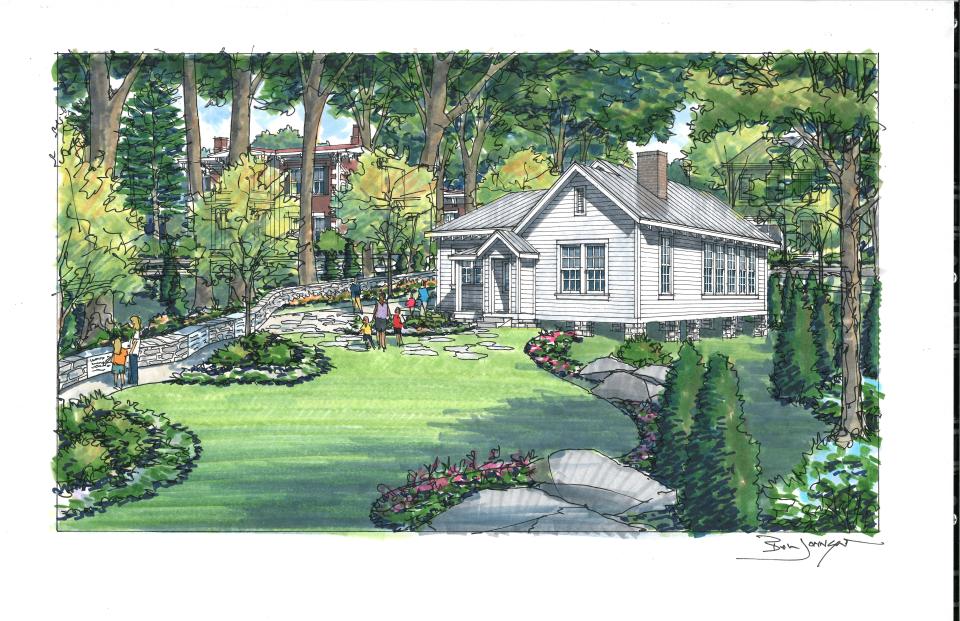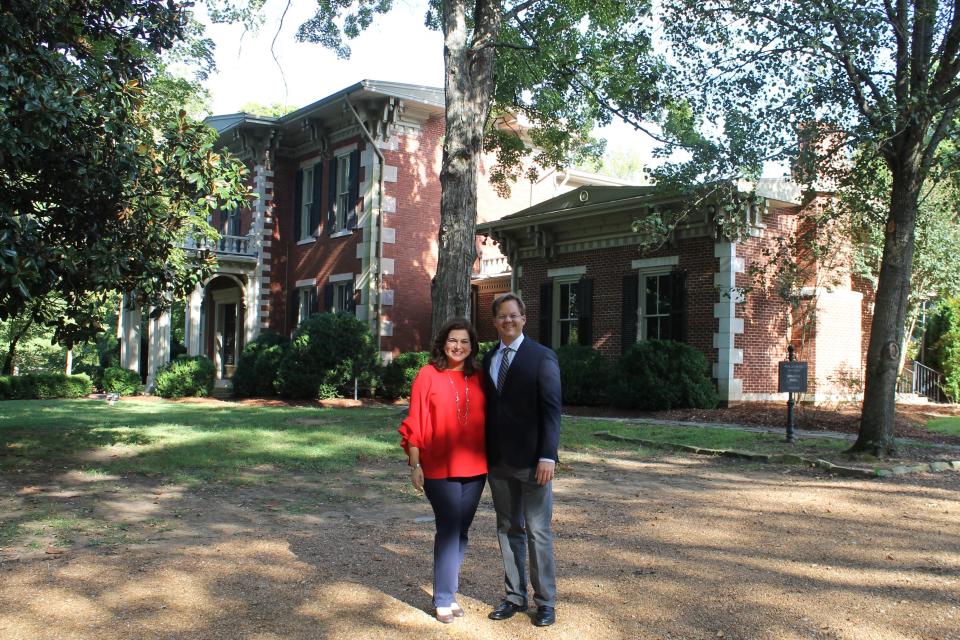Franklin Grove arts campus gets $300K grant, approval to relocate historic school
Williamson County continues to preserve its many historic structures.
The latest forward momentum includes a $300,000 state grant for maintaining and restoring a historic home at the Franklin Grove Estate and Gardens where meditative gardens, art displays and a museum are planned.
And, a more literal move will take place soon with the transfer of a historic schoolhouse onto the property. The schoolhouse move was approved in recent days by Franklin officials.
Both of these projects occurred under the guidance of the Heritage Foundation of Williamson County.

Future community center, museum
The Tennessee Historic Development Grant is for work on the Perkins-Winstead-Jewell House, located at the Franklin Grove site. Planning to transform the property started five years ago when the Heritage Foundation purchased the 5-acre site, which is the former home of O’More College of Design.
Franklin Grove, located on 423 South Margin Street in the downtown Franklin area, is now the foundation’s largest preservation project in its 56-year history.
Already, in 2021, the Heritage Foundation opened the county's first innovation center at the LeHew Mansion — formerly called the Fleming-Farrah mansion — on the Franklin Grove property. The center is for local, small businesses to grow before possibly moving into bigger buildings.
Other plans for Franklin Grove include the following:
Recreated gardens interpreting the historic landscape from its inception to the present.
Fully restored historic 19th century homes housing local and national art collections.
An education center to host lectures and symposiums.

Perkins-Winstead-Jewell House
The Perkins-Winstead-Jewell House, which was built in 1868, belonged to the original landowners on the property. Several years later, in the 1960s, Franklin Mayor Asa Jewel lived in the home until 1978 when Eloise Pitt O’More purchased it. The following year, O’More, who studied design in Paris, moved her O’More School of Design into the residence.
Plans for the grant money include rehabilitating the property according to U.S. Department of the Interior Secretary Standards such as:
Removing non-contributing additions.
Revealing the original rear of the house to the gardens along.
Rehabilitation of the 1980s-era two storied mansard roof addition into a one-story support space.
Provide fully compliant ADA restrooms.
“This important grant contribution is yet another powerful endorsement of our vision and the positive impact it will have on our community as well as on our shared histories and future,” said Bari Beasley, the president and CEO of the Heritage Foundation.
The other Williamson County property to receive a state Historic Development Grant is the White Building in downtown Franklin, which received $112,500 to rehabilitate the structure.
What is the Lee-Bucker Rosenwald School?
At its Feb. 23 meeting, the Franklin Planning Commission approved the relocation of the Lee-Bucker Rosenwald School to the Franklin Grove site. The historic schoolhouse, which was hidden on Duplex Road amid weeds and more, was one of 375 Rosenwald schools built in Tennessee. The schools were designed by former slave and Tuskegee Institute founder Booker T. Washington and Julius Rosenwald, the head of Sears, Roebuck and Company.
Together, they built more than 5,000 schools across America, starting in 1917. The schools' purpose was to serve as a place for African-American children in rural communities to learn.
Once restored, the 1927 Rosenwald school will tell the story of African Americans’ push for equal opportunity in education.
“I feel like this campus will be an avenue for us to be able to enhance what we have to offer the community, particularly with young people,” Beasley said. “We want to raise that next generation of preservationists, and this campus will help us achieve that.”
The targeted completion date for the entire project is 2025.
This article originally appeared on Nashville Tennessean: Historic properties in Franklin awarded 6-figure grants

